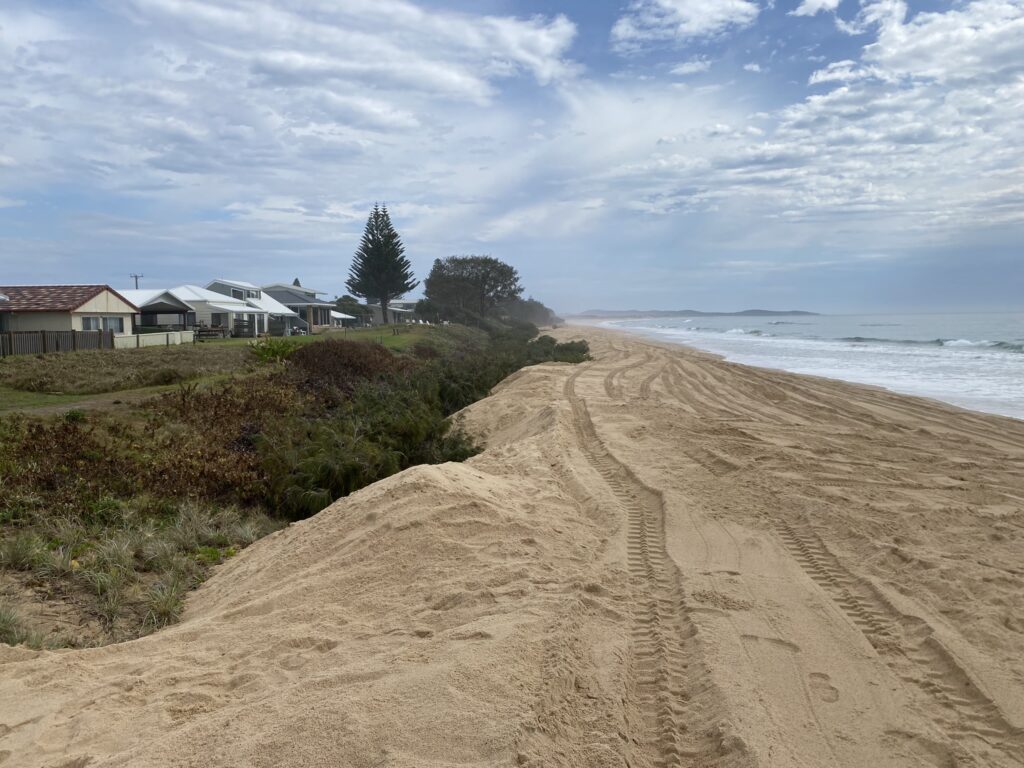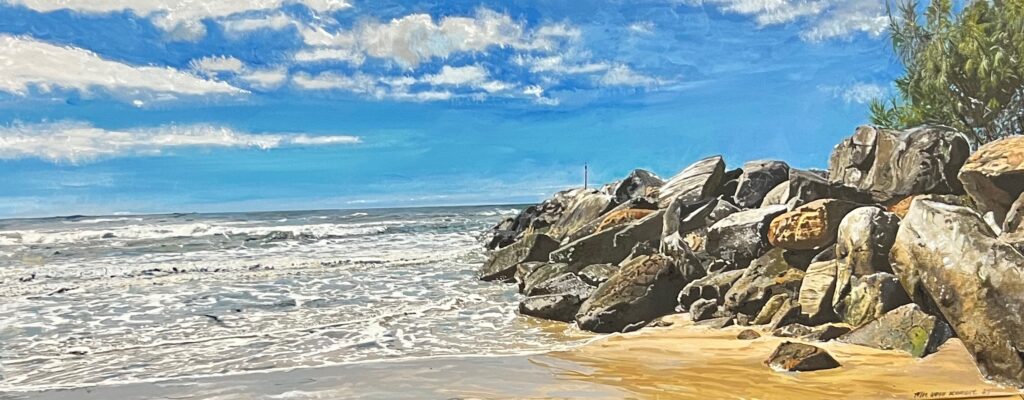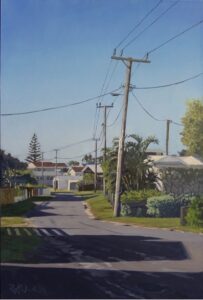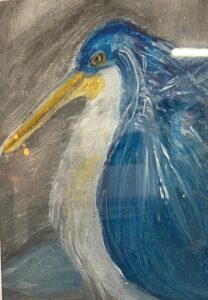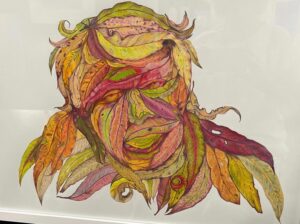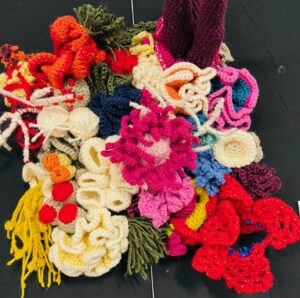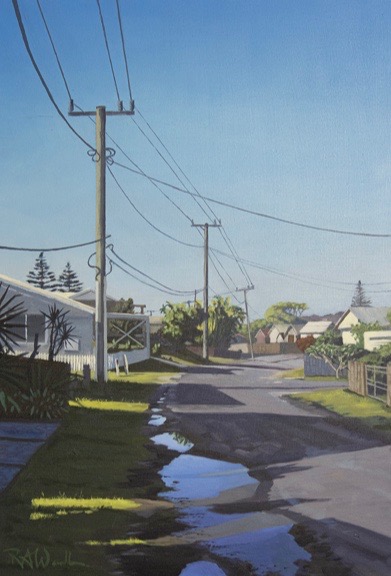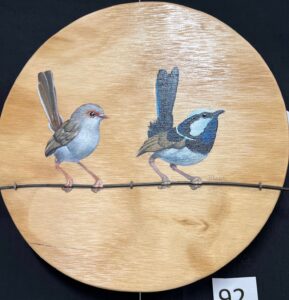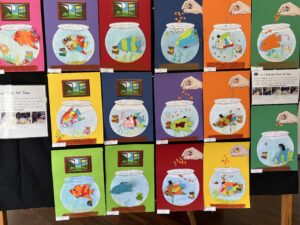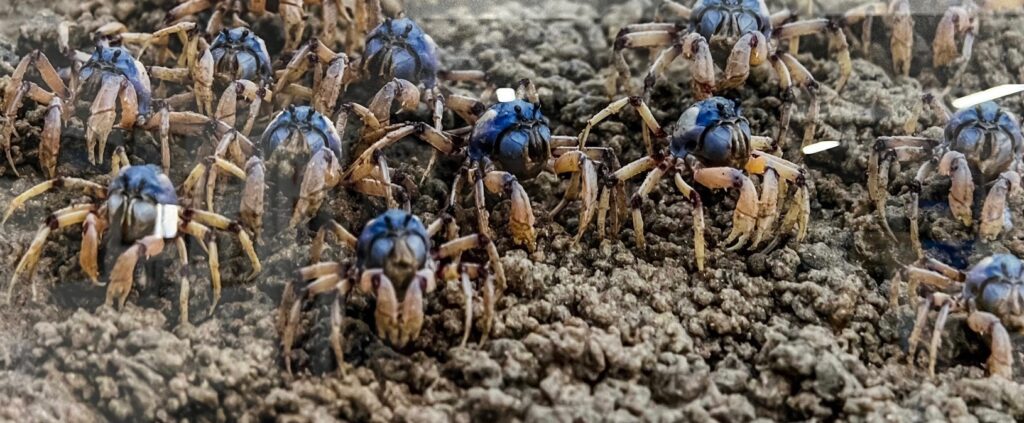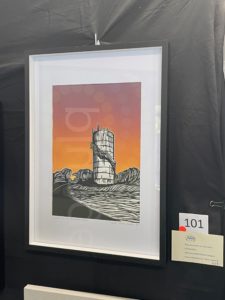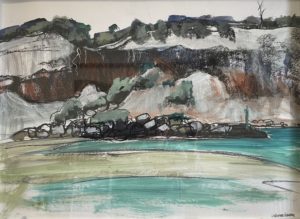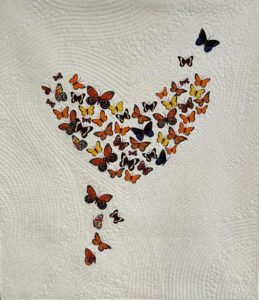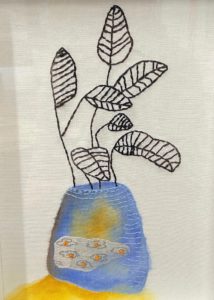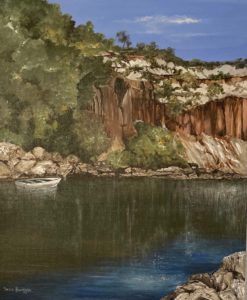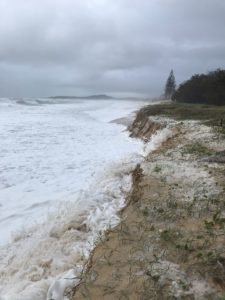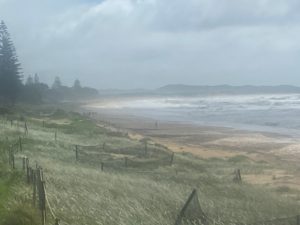Those of us fortunate enough to have been in Wooli recently may have seen the results of a major project to repair and enhance the dune. The project was Wooli’s second beach scraping following the first one in 2019.
What most observers probably don’t know is how close to defeat we came. The major threat was being unable to get all the must-haves together at the same time including beach and weather conditions, multiple licences for State departments, Council and State funding, scraping expertise/experience, heavy machinery, operators, and a low holiday season.
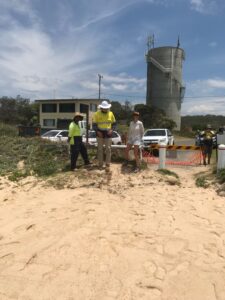 Ironically, beach and weather conditions had been perfect for scraping for several months during which
Ironically, beach and weather conditions had been perfect for scraping for several months during which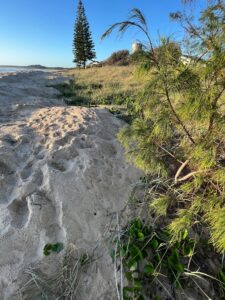 the struggle for licences continued and just as these appeared in reach, storms removed substantial sand. Council received the final licence only 3 weeks before it was due to expire (with years of delay then likely). The big question was whether the project could be completed in those 3 weeks.
the struggle for licences continued and just as these appeared in reach, storms removed substantial sand. Council received the final licence only 3 weeks before it was due to expire (with years of delay then likely). The big question was whether the project could be completed in those 3 weeks.
You can see from these photos that the answer was a resounding “yes”. While many hands were involved in making this happen, special thanks must go to key staff at Council, the State Environment department and to our resident surveyor Brian Saye.
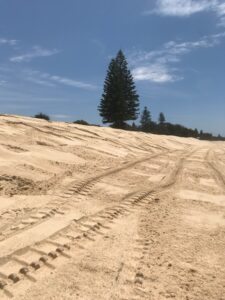 This is a good time to put the second scrape in context as part of the beach management strategy within Council’s long-term Coastal Zone Management Plan.
This is a good time to put the second scrape in context as part of the beach management strategy within Council’s long-term Coastal Zone Management Plan.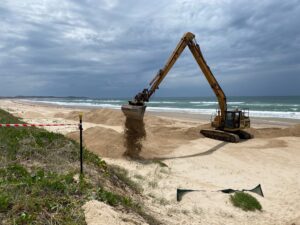
The strategy aims to protect the most vulnerable beach zone from a 1-in-50-year storm by adding 60,000 cubic metres of sand to the dune. The first two beach scrapes have contributed just over 22,000 cubic metres of that amount. CCPA has paid $45,000 (25%) toward the cost of these scrapes, raised primarily by member donations, supplemented by merchandise sales and Wooli Artist Group (WAG) donations.
It’s important to note that the project is by no means completed. Wooli is enjoying progress that many coastal villages can only dream of. Firstly, thanks to beach scraping, sand traps and revegetation, the dunes and village are better protected from erosion than at any time in living memory. Secondly, a vibrant cultural environment centred on WAG’s annual Art Show is flourishing driven by both long-term residents and newly arrived enthusiasts.
In recent years the relationship between CCPA and WAG has become increasingly beneficial to both as CCPA provides WAG with access to operational tools (corporate-licence, banking facilities and a website) while WAG continues to steadily grow its donations to CCPA.
Long-serving members of CCPA’s executive team will be retiring shortly. This will create the opportunity for new office bearers from CCPA’s greater Wooli community to take up the challenge of progressing our beach protection work. Confirming the CCPA-WAG relationship will be a key component of that journey.
